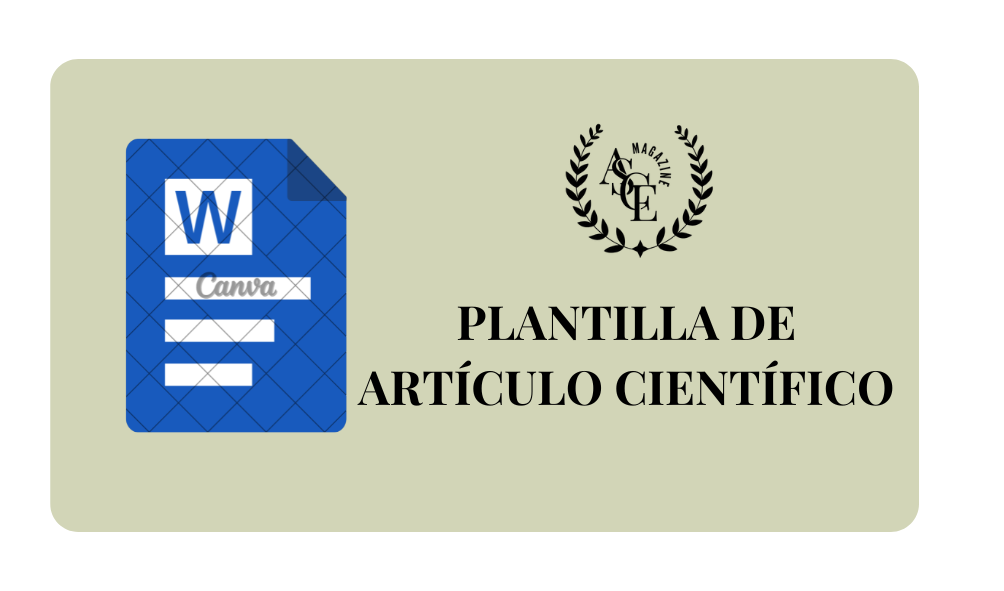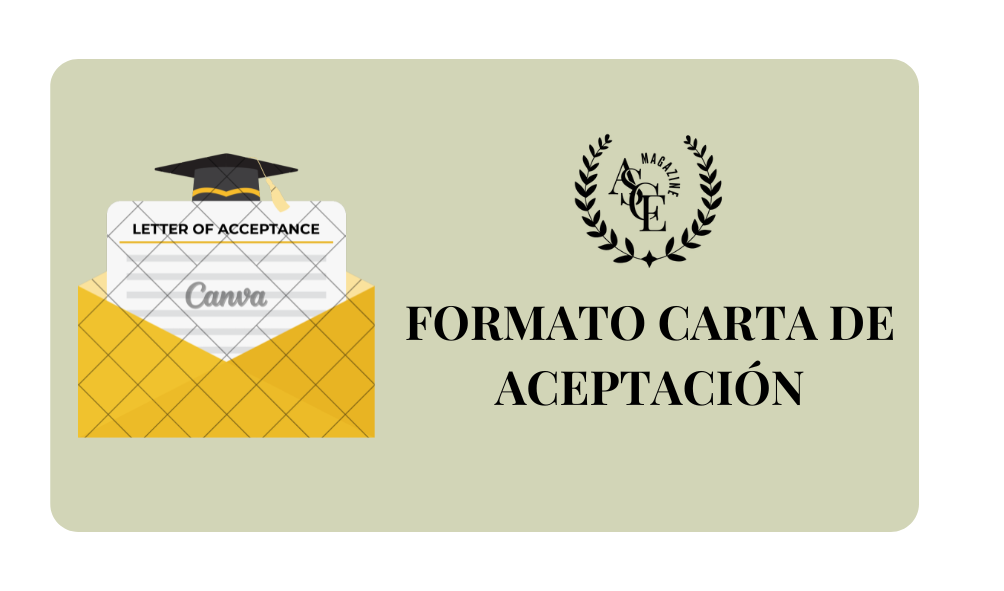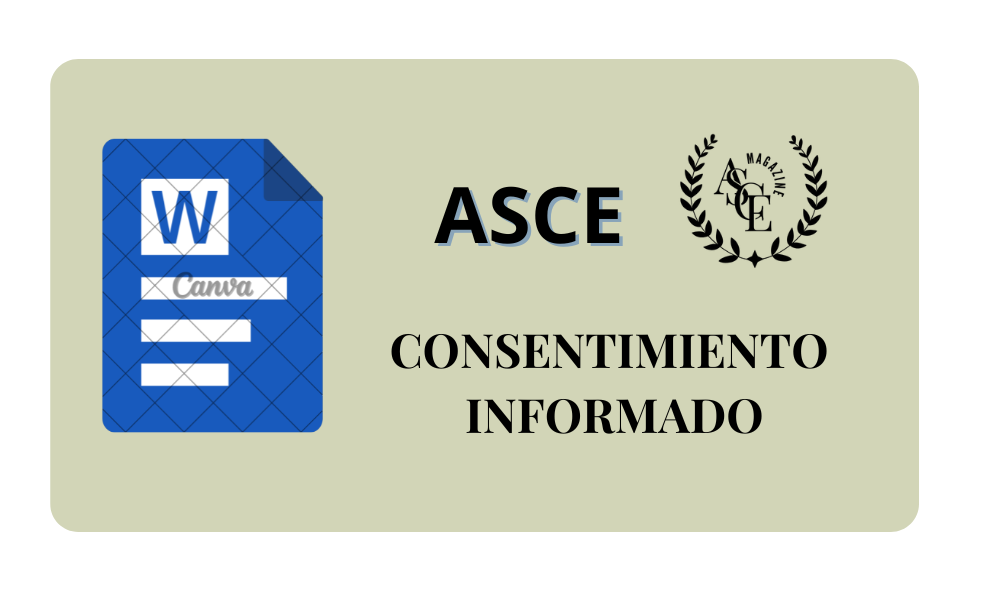Integration of Digital Technologies and Learning Analytics for Personalized Differential Calculus Teaching in Higher Education
DOI:
https://doi.org/10.70577/ASCE/478.502/2025Keywords:
Educational technology, learning analytics, learning personalization, differential calculus, higher education, automated feedback, adaptive learning paths.Abstract
The research aims to study how digital technology and learning analytics enable personalized instruction in differential calculus for higher education students. It seeks to assess the impact of automated feedback combined with adaptive learning pathways on student achievement and motivation by tracking interaction, performance, and academic progress. A mixed-method research approach was used to achieve the goal. It included quantitative data collection and analysis from educational platforms, as well as qualitative semi-structured interviews and questionnaires with students and faculty. 180 first-year students were divided into an experimental group with technology-enhanced instruction and a control group with traditional teaching. The students were enrolled in a Differential Calculus course at two public universities. The study lasted 16 weeks, one academic semester.The experimental group achieved significantly higher performance in Differential Calculus assessments compared to the control group (average score of 85% vs. 74%; p < 0.01). The system effectively adjusted the level of challenge after three consecutive errors, reducing performance stagnation by 20% in digital learning pathways.Students attributed increased motivation, autonomy, and confidence to immediate feedback and personalized learning routes in interviews. Positive outcomes noted by faculty members included reduced grading time and the ability to focus tutorial sessions on challenging concepts. The integration of digital technology and learning analytics enables personalized guidance in Differential Calculus, fostering a student-centered approach. This is significant because Differential Calculus is a notoriously abstract subject. Synergy can enhance learning and reduce dropout rates, developing graduates with strong analytical skills. The model should be adapted to other branches of mathematics and different educational contexts.
Downloads
References
A Systematic Review of Learning Analytics in Higher Education. (2024). Education Sciences, 14(1), 51. https://doi.org/10.3390/educsci14010051 DOI: https://doi.org/10.3390/educsci14010051
Acosta Porras, J. S., Moyon Sani, V. E., Arias Vega, G. Y., Vásquez Alejandro, L. M., Ruiz Cires, O. A., Albia Vélez, B. K., & Bernal Párraga, A. P. (2024). Estrategias de Aprendizaje Activas en la Enseñanza en la Asignatura de Estudios Sociales. Ciencia Latina Revista Científica Multidisciplinar, 8(5), 411–433. https://doi.org/10.37811/cl_rcm.v8i5.13320 DOI: https://doi.org/10.37811/cl_rcm.v8i5.13320
Adaptive Teaching with Technology in Undergraduate Mathematics. (2025). Journal of Educational Psychology, 117(2), 380–399. https://doi.org/10.1037/edu0000830 DOI: https://doi.org/10.1037/edu0000830
Alarcón Burneo, S. N., Basantes Guerra, J. P., Chaglla Lasluisa, W. F., Carvajal Coronado, D. E., Martínez Oviedo, M. Y., Vargas Saritama, M. E., & Bernal Párraga, A. P. (2024). Uso de Recursos Manipulativos para Mejorar la Comprensión de Conceptos Matemáticos Abstractos en la Educación Secundaria. Ciencia Latina Revista Científica Multidisciplinar, 8(5), 1972–1988. https://doi.org/10.37811/cl_rcm.v8i5.13669 DOI: https://doi.org/10.37811/cl_rcm.v8i5.13669
Alonso, G., Muñoz, C., & Vélez, D. (2023). Adaptive dashboards in STEM education: Enhancing personalized feedback. ResearchGate. https://www.researchgate.net/publication/374004113
Álvarez Piza, R. A., Del Hierro Pérez, M. C., Vera Molina, R. M., Moran Piguave, G. D., Pareja Mancilla, S. S., Narváez Hoyos, J. J., & Bernal Párraga, A. P. (2024). Desarrollo del Pensamiento Lógico a través de la Resolución de Problemas en Matemáticas: Estrategias Eficaces para la Educación Básica. Ciencia Latina Revista Científica Multidisciplinar, 8(5), 2212–2229. https://doi.org/10.37811/cl_rcm.v8i5.13686 DOI: https://doi.org/10.37811/cl_rcm.v8i5.13686
Arequipa Molina, A. D., Cruz Roca, A. B., Nuñez Calle, J. J., Moreira Vélez, K. L., Guevara Guevara, N. P., Bassantes Guerra, J. P., & Bernal Párraga, A. P. (2024). Formación Docente en Estrategias Innovadoras y su Impacto en el Aprendizaje de las Matemáticas. Ciencia Latina Revista Científica Multidisciplinar, 8(4), 9597–9619. https://doi.org/10.37811/cl_rcm.v8i4.13111 DOI: https://doi.org/10.37811/cl_rcm.v8i4.13111
Baker, R. S., Heffernan, N. T., & Gowda, S. M. (2025). Ethical considerations in adaptive learning technologies. Educational Technology Research and Development, 73(1), 45–62. https://doi.org/10.1007/s11423-025-10005-2
Barcos‑Sánchez, H. A., López‑Domínguez, A., & Sánchez‑Casanova, R. (2023). El proceso de enseñanza-aprendizaje desarrollador. Revista Conrado, 19(91), 101-109. https://conrado.ucf.edu.cu/index.php/conrado/article/view/2975
Bernal Párraga, A. P., Coronel Ramírez, E. A., Aldas Macías, K. J., Carvajal Madrid, C. A., Valarezo Espinoza, B. D. C., Vera Alcívar, J. G., & Chávez Cedeño, J. U. (2025). The Impact of Artificial Intelligence on Personalized Learning in English Language Education. Ciencia Latina Revista Científica Multidisciplinar, 9(1), 5500–5518. https://doi.org/10.37811/cl_rcm.v9i1.16234 DOI: https://doi.org/10.37811/cl_rcm.v9i1.16234
Bernal Párraga, A. P., Haro Cedeño, E. L., Reyes Amores, C. G., Arequipa Molina, A. D., Zamora Batioja, I. J., Sandoval Lloacana, M. Y., & Campoverde Durán, V. D. R. (2024). La Gamificación como Estrategia Pedagógica en la Educación Matemática. Ciencia Latina Revista Científica Multidisciplinar, 8(3), 6435–6465. https://doi.org/10.37811/cl_rcm.v8i3.11834 DOI: https://doi.org/10.37811/cl_rcm.v8i3.11834
Bernal Párraga, A. P., Ninahualpa Quiña, G., Cruz Roca, A. B., Sarmiento Ayala, M. Y., Reyes Vallejo, M. E., García Carrillo, M. de J., & Benavides Espín, D. S. (2024). Innovation in Early Childhood: Integrating STEM from the Area of Mathematics for Significant Improvement. Ciencia Latina Revista Científica Multidisciplinar, 8(4), 5675–5699. https://doi.org/10.37811/cl_rcm.v8i4.12779 DOI: https://doi.org/10.37811/cl_rcm.v8i4.12779
Bernal Párraga, A. P., Toapanta Guanoquiza, M. J., Martínez Oviedo, M. Y., Correa Pardo, J. A., Ortiz Rosillo, A., Guerra Altamirano, I. del C., & Molina Ayala, R. E. (2024). Aprendizaje Basado en Role-Playing: Fomentando la Creatividad y el Pensamiento Crítico desde Temprana Edad. Ciencia Latina Revista Científica Multidisciplinar, 8(4), 1437–1461. https://doi.org/10.37811/cl_rcm.v8i4.12389 DOI: https://doi.org/10.37811/cl_rcm.v8i4.12389
Castillo Baño, C. P., Cruz Gaibor, W. A., Bravo Jácome, R. E., Sandoval Lloacana, C. F., Guishca Ayala, L. M., Campaña Nieto, R. A., Yépez Mogro, T. C., & Bernal Párraga, A. P. (2024). Uso de Tecnologías Digitales en la Educación para la Ciudadanía. Ciencia Latina Revista Científica Multidisciplinar, 8(4), 5388–5407. https://doi.org/10.37811/cl_rcm.v8i4.12756 DOI: https://doi.org/10.37811/cl_rcm.v8i4.12756
Chaparro Amaya, M. A., González, H. P., & Sánchez, J. C. (2023). Discovering insights in learning analytics through a mixed-methods framework. Journal of Computer Assisted Learning, 39(5), 1234–1250. https://doi.org/10.1111/jcal.12894 DOI: https://doi.org/10.1111/jcal.12894
Chaparro Amaya, M. A., González, H. P., & Sánchez, J. C. (2023). Discovering insights in learning analytics through a mixed-methods framework: Application to computer programming education. ResearchGate. https://www.researchgate.net/publication/373503954
Chatti, M. A., Dyckhoff, A. L., Schroeder, U., & Thüs, H. (2023). The FCL-SRL model: A framework for self-regulated learning analytics. arXiv preprint, arXiv:2303.12388. https://arxiv.org/abs/2303.12388
Chen, L., Li, Y., & Tan, Z. (2023). Bayesian knowledge tracing in STEM education: insights and innovations. Computers & Education, 192, 104619. https://doi.org/10.1016/j.compedu.2023.104619
Cheng, J., Zhang, H., & Yuan, C. (2023). Analyzing student engagement in LMS via log data: A temporal approach. Interactive Learning Environments, 31(1), 45–63. https://doi.org/10.1080/10494820.2022.2080896
Cosquillo Chida, J. L., Burneo Cosios, L. A., Cevallos Cevallos, F. R., Moposita Lasso, J. F., & Bernal Párraga, A. P. (2025). Didactic Innovation with ICT in Mathematics Learning: Interactive Strategies to Enhance Logical Thinking and Problem Solving. Revista Iberoamericana de Educación, 9(1), 269–286. https://doi.org/10.31876/rie.v9i1.299 DOI: https://doi.org/10.31876/rie.v9i1.299
Costa, R. S., Almeida, F. R., & Oliveira, T. (2023). Adaptive virtual environments for calculus learning: a Brazilian case. Revista Brasileira de Informática na Educação, 31(2), e3202. https://doi.org/10.5753/rbie.2023.31.2.e3202
Durán‑Pineda, S., Ruíz‑Cruz, J. M., & Hernández‑López, M. (2024). Análisis de interacción en secuencias de derivación: un estudio mexicano. Computers in Human Behavior, 145, 107684. https://doi.org/10.1016/j.chb.2023.107684 DOI: https://doi.org/10.1016/j.chb.2023.107684
Faúdez, T. A., Zamora, N., & Cisternas, C. (2017). Integración de TIC en la enseñanza del cálculo. Revista de Mediación, 22(4), 45-59. https://doi.org/10.4067/S0718-50062017000400005 DOI: https://doi.org/10.4067/S0718-50062017000400005
Fierro Barrera, G. T., Aldaz Aimacaña, E. del R., Chipantiza Salán, C. M., Llerena Mosquera, N. C., Morales Villegas, N. R., Morales Armijo, P. A., & Bernal Párraga, A. P. (2024). El Refuerzo Académico en Educación Básica Superior en el Área de Matemática. Ciencia Latina Revista Científica Multidisciplinar, 8(4), 9639–9662. https://doi.org/10.37811/cl_rcm.v8i4.13115 DOI: https://doi.org/10.37811/cl_rcm.v8i4.13115
Gallo, P., Fernández, M., & Colombo, P. (2022). Recomendación de ejercicios de integración y su impacto en el rendimiento. Journal of Educational Computing Research, 60(5), 1254–1273. https://doi.org/10.1177/07356331221088965
García‑Peñalvo, F. J., Mendes, A. J., & Santos, A. I. (2023). Privacy and ethics in learning analytics systems. International Review of Research in Open and Distributed Learning, 24(1), 78–93. https://doi.org/10.19173/irrodl.v24i1.7033
Guishca Ayala, L. A., Bernal Párraga, A. P., Martínez Oviedo, M. Y., Pinargote Carreño, V. G., Alcívar Vélez, V. E., Pinargote Carreño, V. L., Pisco Mantuano, J. E., Cárdenas Pila, V. N., & Guevara Albarracín, E. S. (2024). Integración De La Inteligencia Artificial En La Enseñanza De Matemáticas: Un Enfoque Personalizado Para Mejorar El Aprendizaje. Ciencia Latina Revista Científica Multidisciplinar, 8(6), 818–839. https://doi.org/10.37811/cl_rcm.v8i5.14114 DOI: https://doi.org/10.37811/cl_rcm.v8i5.14114
Jiménez Bajaña, S. R., Crespo Peñafiel, M. F., Villamarín Barragán, J. G., Barragán Averos, M. D. L., Barragán Averos, M. B., Escobar Vite, E. A., & Bernal Párraga, A. P. (2024). Metodologías Activas en la Enseñanza de Matemáticas: Comparación entre Aprendizaje Basado en Problemas y Aprendizaje Basado en Proyectos. Ciencia Latina Revista Científica Multidisciplinar, 8(3), 6578–6602. https://doi.org/10.37811/cl_rcm.v8i3.11843 DOI: https://doi.org/10.37811/cl_rcm.v8i3.11843
Johnston, K., & Jendoubi, S. (2024). Qualitative feedback and adaptive e-learning: mixed-methods analysis. arXiv preprint, arXiv:2403.14686. https://arxiv.org/abs/2403.14686
Lemus, A., & Rivas, F. (2023). Validación de cuestionarios para evaluación de competencias digitales en contextos universitarios. ResearchGate. https://www.researchgate.net/publication/374013294
López‑García, M. A., & Pérez‑Sánchez, E. (2021). Vídeos interactivos y análisis de error en Moodle para cálculo. Educational Technology Research and Development, 69(3), 1535–1554. https://doi.org/10.1007/s11423-021-09998-2
Martínez‑Monés, A., Rodríguez‑Arteaga, M., & Iglesias, P. (2023). Integración de LA en entornos universitarios: revisión y retos. Interactive Learning Environments, 31(4), 590–606. https://doi.org/10.1080/10494820.2023.2165641
Mishra, P., & Koehler, M. J. (2006). Technological Pedagogical Content Knowledge: A Framework for Teacher Knowledge. Teachers College Record, 108(6), 1017–1054. https://doi.org/10.1111/j.1467-9620.2006.00684.x DOI: https://doi.org/10.1177/016146810610800610
Peña‑Acuña, A., Rodríguez, R., & González, J. (2023). Visualización e-learning adaptativo en cálculo diferencial. Revista Iberoamericana de Educación a Distancia, 26(1), 25–44. https://doi.org/10.5944/ried.26.1.32095
Peralta, E., & Barrera, M. (2024). Evaluación de herramientas adaptativas en la enseñanza del cálculo: Un enfoque centrado en el estudiante. ResearchGate. https://www.researchgate.net/publication/374293821
Piaget, J. (1970). Psychology and Epistemology: Towards a Theory of Knowledge. Penguin. DOI: https://doi.org/10.7312/piag91272
Prachagool, V., & Nuangchalerm, P. (2023). AI-driven learning analytics in STEM education: an integrated model. ResearchGate. https://www.researchgate.net/publication/377579411
Quiroz Moreira, M. I., Mecías Córdova, V. Y., Proaño Lozada, L. A., Hernández Centeno, J. A., Chóez Acosta, L. A., Morales Contreras, A. M., & Bernal Párraga, A. P. (2024). Plataformas de Evaluación Digital: Herramientas para Optimizar el Feedback y Potenciar el Aprendizaje. Ciencia Latina Revista Científica Multidisciplinar, 8(5), 2020–2036. https://doi.org/10.37811/cl_rcm.v8i5.13673 DOI: https://doi.org/10.37811/cl_rcm.v8i5.13673
Ramírez‑Echeverry, J. J., Flórez, L. A., & González, M. C. (2023). Aprendizaje personalizado con analítica del aprendizaje: un estudio de caso. Revista Educación y Tecnología, 32(2), 89–107. https://doi.org/10.5209/rete.78523
Ramteja Sajja, G., & Bhat, A. (2023). Integrating AI and learning analytics for dynamic adaptation in mathematics learning. arXiv preprint arXiv:2307.11597. https://arxiv.org/abs/2307.11597
Rodríguez, L., & Meneses, J. (2024). Cognitive modeling in online math learning: A predictive control approach. Computers & Education, 204, 104919. https://doi.org/10.1016/j.compedu.2023.104919
Romero, C., & Ventura, S. (2022). Learning analytics integration in higher education: A systematic review. Review of Educational Research, 92(4), 556–595. https://doi.org/10.3102/00346543221098213
Roy, R., & Swargiary, A. (2024). Exploring the impact of AI integration in education: A mixed-methods study. ResearchGate. https://www.researchgate.net/publication/381539555 DOI: https://doi.org/10.2139/ssrn.4857648
Serrano, A., Velázquez, R., & Gómez, I. (2024). Ética de datos en sistemas adaptativos universitarios. Journal of Learning Analytics, 11(1), 55–70. https://doi.org/10.18608/jla.2024.11.1.4
Siddiqui, A. H., Santosh, K., & Suresh, B. (2024). Exploring the dynamics of educational feedback networks with graph theory and LSTM‑based modeling for enhanced learning analytics and feedback mechanisms. Journal of Theoretical and Applied Information Technology, 101(1), 111–122. Retrieved from https://www.researchgate.net/publication/377412242.
Siemens, G., & Long, P. (2011). Penetrating the fog: Analytics in learning and education. EDUCAUSE Review, 46(5), 30–40. https://er.educause.edu/articles/2011/9/penetrating-the-fog-analytics-in-learning-and-education
Singh, M., & Chandra, S. (2023). Impact of adaptive learning systems in STEM: a meta-analysis. Computers & Education, 196, 104639. https://doi.org/10.1016/j.compedu.2023.104639
Stinar, Z., Long, Y., & Schneider, B. (2025). Fairness of Bayesian Knowledge Tracing for math learners of different reading ability. Computers and Education: Artificial Intelligence, 6, 100165. https://doi.org/10.1016/j.caeai.2024.100165
Suárez, R., & Hidalgo, J. (2023). Data integrity and anonymization in learning analytics systems. ResearchGate. https://www.researchgate.net/publication/373950172
Sun, Y., Zhao, Y., & Yu, L. (2025). Hierarchical Bayesian Knowledge Tracing for personalized feedback in STEM. arXiv preprint arXiv:2506.00057. https://arxiv.org/abs/2506.00057
Takami, H., Yoshikawa, H., & Matsuda, T. (2021). Evaluating the effectiveness of Bayesian knowledge tracing model-based explainable recommender. ResearchGate. https://www.researchgate.net/publication/378039794
Vera‑Valdés, J., & Gutiérrez, M. (2022). Heterogeneidad y abstracción en el aprendizaje universitario del cálculo. Revista Latinoamericana de Investigación en Matemática Educativa, 25(1), 89–107. https://doi.org/10.12802/relime.22.2513
Vera‑Valdés, J., & Gutiérrez, M. (2022). Heterogeneidad y abstracción en el aprendizaje universitario del cálculo. Revista Latinoamericana de Investigación en Matemática Educativa, 25(1), 89–107. https://doi.org/10.12802/relime.22.2513 DOI: https://doi.org/10.12802/relime.22.2513
Vygotsky, L. S. (1978). Mind in Society: The Development of Higher Psychological Processes. Harvard University Press.
Zamora Arana, M. G., Bernal Párraga, A. P., Ruiz Cires, O. A., Cholango Tenemaza, E. G., & Santana Mero, A. P. (2024). Impulsando el Aprendizaje en el Aula: El Rol de las Aplicaciones de Aprendizaje Adaptativo Impulsadas por Inteligencia Artificial en la Educación Básica. Ciencia Latina Revista Científica Multidisciplinar, 8(3), 4301–4318. https://doi.org/10.37811/cl_rcm.v8i3.11645 DOI: https://doi.org/10.37811/cl_rcm.v8i3.11645
Downloads
Published
How to Cite
Issue
Section
License
Copyright (c) 2025 John Eduardo Guiñanzaca Vaca, Pedro Daniel Armijo Guamán, Eduardo Agustín Serrano Estrada, Toapanta Cunalata Oscar Gabriel, Carlos Fernando Heredia Villamarín

This work is licensed under a Creative Commons Attribution-NonCommercial-NoDerivatives 4.0 International License.






























